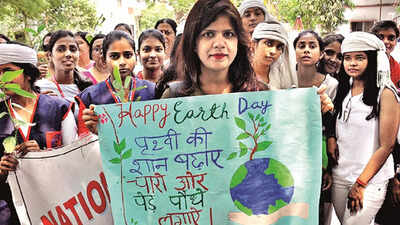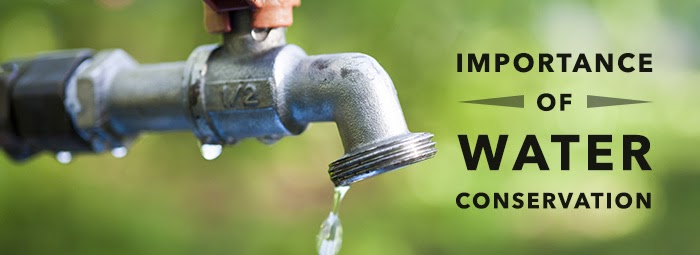Students across Karnataka were recently addressed on the critical importance of conserving water and soil, with experts emphasizing that sustainable management of natural resources is a responsibility shared by all. The awareness program, organized by local educational authorities and environmental groups, highlighted the challenges posed by water scarcity, soil erosion, and unsustainable agricultural practices.
Speakers stressed that indiscriminate use of groundwater, deforestation, and over-reliance on chemical fertilizers have significantly degraded soil health and reduced water availability, threatening both ecosystems and human livelihoods. Students were encouraged to adopt practical measures, such as rainwater harvesting, efficient irrigation methods, and tree plantation initiatives, to mitigate these issues. Interactive sessions, demonstrations, and group activities were conducted to make the learning process engaging and hands-on, helping students internalize the significance of conservation in their daily lives.
Authorities emphasized that while government policies and programs are essential, individual awareness and community action play a pivotal role in ensuring long-term environmental sustainability. The session concluded with a call for students to become ambassadors of conservation, spreading knowledge about responsible water and soil use within their families, schools, and neighborhoods, thereby cultivating a culture of environmental stewardship from a young age.
The program also detailed the interconnections between soil health, water conservation, and agriculture. Experts explained that fertile soil retains water more efficiently, supports crop growth, and reduces the risk of droughts, while degraded soil leads to lower productivity and increased water stress. Students learned about techniques such as mulching, contour farming, and organic composting that help maintain soil structure, prevent erosion, and improve water retention.
Demonstrations of rainwater harvesting systems illustrated how collecting and storing rainwater can supplement irrigation needs, reduce dependence on groundwater, and prevent flooding during heavy rains. The students were motivated to think of simple, actionable steps they can implement at home or in school gardens to make a tangible difference. Teachers and organizers emphasized that awareness alone is insufficient; sustained action and practical application of conservation methods are crucial to achieving measurable environmental benefits.
Discussions during the program underscored the role of youth in driving environmental change. Students were encouraged to form eco-clubs, participate in local conservation projects, and advocate for responsible water and soil management in their communities. Case studies of successful initiatives from other regions were shared, highlighting how small, consistent efforts can lead to significant improvements in water availability and soil quality.
Speakers stressed that students, as future leaders and citizens, have the power to influence societal attitudes toward natural resource management. By fostering environmentally conscious habits early, the program aimed to instill a sense of responsibility that would extend beyond the classroom. Interactive Q&A sessions allowed students to ask questions, share ideas, and commit to specific conservation actions, reinforcing the message that individual participation is vital for collective environmental sustainability.

Practical Measures and Student Engagement
The awareness program incorporated hands-on activities to teach students practical conservation techniques. Demonstrations included soil testing, composting workshops, and construction of small-scale rainwater harvesting models. By actively engaging with these practices, students could visualize the impact of proper soil and water management. Trainers highlighted that simple habits—such as minimizing water wastage, planting trees, and avoiding chemical overuse—can cumulatively make a significant difference. The sessions also encouraged students to monitor water usage in their households and schools, promoting accountability and continuous engagement. Emphasis was placed on making conservation a routine, rather than a one-time activity, cultivating environmentally responsible behavior as part of daily life.
Students were also taught the science behind water cycles and soil formation, helping them understand why these resources are finite and delicate. Presentations illustrated how human activities, climate change, and deforestation disrupt natural systems, leading to scarcity, erosion, and pollution. Students were motivated to adopt eco-friendly practices, from using water-saving irrigation techniques to growing organic gardens that enrich soil health. Teachers reinforced the idea that conservation is not only an environmental imperative but also essential for sustaining agriculture, biodiversity, and community well-being. The program emphasized that youth awareness is critical in shaping a generation capable of making informed decisions to protect natural resources.
Building a Culture of Environmental Responsibility
The program concluded with a discussion on community-level conservation efforts. Students were encouraged to participate in tree planting drives, watershed management projects, and campaigns to prevent littering and soil degradation. Experts highlighted examples of villages and schools that successfully implemented water and soil conservation initiatives, demonstrating that collective action amplifies individual efforts. The program stressed that responsibility extends beyond personal habits to include influencing peers, families, and local communities. By fostering a culture of environmental stewardship, students can help ensure sustainable resource management for future generations, reinforcing the message that conservation is a shared, ongoing responsibility.
Teachers highlighted that integrating conservation education into daily routines, school curricula, and extracurricular activities strengthens students’ commitment to sustainability. Lessons were designed to be interactive, combining theory with practice, and encouraging critical thinking about resource management. Students were urged to document their efforts, reflect on results, and share experiences to inspire others. The initiative sought to empower young people to act as catalysts for change, demonstrating that informed, motivated individuals can collectively influence environmental outcomes. By fostering awareness, practical skills, and a sense of duty, the program aimed to equip students with the tools to safeguard water and soil resources effectively.
Organizers emphasized the long-term benefits of student engagement in conservation. Healthy soil and adequate water supply are foundational to agriculture, food security, and biodiversity preservation. By promoting proactive participation among youth, the program sought to create a sustainable framework where future generations are prepared to face environmental challenges. Students were encouraged to collaborate with local authorities, NGOs, and community leaders to expand the reach and impact of conservation initiatives. Through consistent effort and informed decision-making, young participants can play a significant role in mitigating resource depletion and promoting ecological balance.
Practical demonstrations of composting and organic farming were particularly well-received, providing students with tangible skills to improve soil fertility while reducing chemical dependency. Trainers explained how integrating such methods in school gardens or home plots can improve water retention, enhance crop yields, and reduce environmental contamination. These activities were paired with lessons on monitoring soil moisture, preventing erosion, and sustainable water usage, allowing students to connect theory with practice. Such experiential learning reinforced the program’s core message: that conservation is both achievable and necessary through informed action.

Students were also educated on government schemes and programs promoting water and soil conservation, including incentives for rainwater harvesting, watershed development, and organic farming. Understanding available resources and policy support equips students to participate more effectively in local initiatives. The sessions encouraged them to advocate for conservation practices in their communities, bridging the gap between knowledge and implementation. By combining awareness, skills, and policy knowledge, the program empowered students to become active participants in environmental stewardship.
The role of teachers and parents in reinforcing conservation messages was highlighted throughout the program. Students were encouraged to involve family members in water-saving practices, tree planting, and soil enrichment activities. Collaborative efforts at home and in the community were emphasized as essential for fostering long-lasting environmental responsibility. Trainers stressed that behavior change at an individual level, when multiplied across households and schools, can result in meaningful improvements in local ecosystems, demonstrating that everyone has a role in protecting natural resources.

Finally, the program concluded with a pledge-taking exercise, where students committed to adopting sustainable water and soil practices in their daily lives. This symbolic act reinforced personal accountability and collective responsibility, leaving participants with a sense of purpose and motivation. Organizers expressed hope that such initiatives would inspire continuous action, transforming awareness into measurable conservation outcomes. By instilling knowledge, practical skills, and a sense of duty, the program aimed to ensure that students become proactive custodians of Karnataka’s water and soil resources, securing environmental sustainability for the future.
The conservation awareness program emphasized that water scarcity and soil degradation are not distant problems—they affect local communities directly. Speakers highlighted examples from drought-prone districts in Karnataka, where improper irrigation, deforestation, and unregulated groundwater extraction have led to reduced crop yields and strained resources. Students were encouraged to think critically about the consequences of environmental neglect, understanding that individual and collective actions can either exacerbate or alleviate these challenges. By connecting local experiences to broader environmental issues, the program aimed to make conservation both relevant and actionable for young learners.
Interactive sessions focused on water-saving technologies such as drip irrigation, micro-irrigation, and rainwater harvesting systems. Students were guided on how these methods optimize water usage, reduce wastage, and improve agricultural productivity. Demonstrations included constructing simple rainwater storage units and monitoring soil moisture levels to prevent over-irrigation. Trainers explained that adopting these techniques at home or in school gardens could significantly reduce dependency on external water sources. By providing hands-on experience, the program allowed students to witness the practical benefits of conservation measures, reinforcing the importance of integrating knowledge with action.
Soil conservation techniques were given equal attention during the sessions. Students learned about contour farming, mulching, crop rotation, and organic composting as methods to prevent erosion, enhance fertility, and maintain ecological balance. Trainers explained that healthy soil is crucial for sustaining agriculture, preventing desertification, and supporting biodiversity. By understanding soil science, students could appreciate the delicate balance between human activity and natural resource management. The practical demonstrations enabled learners to experiment with these techniques firsthand, fostering a deeper understanding of their relevance and applicability.
Follow: Karnataka Government
Also read: Home | Channel 6 Network – Latest News, Breaking Updates: Politics, Business, Tech & More

